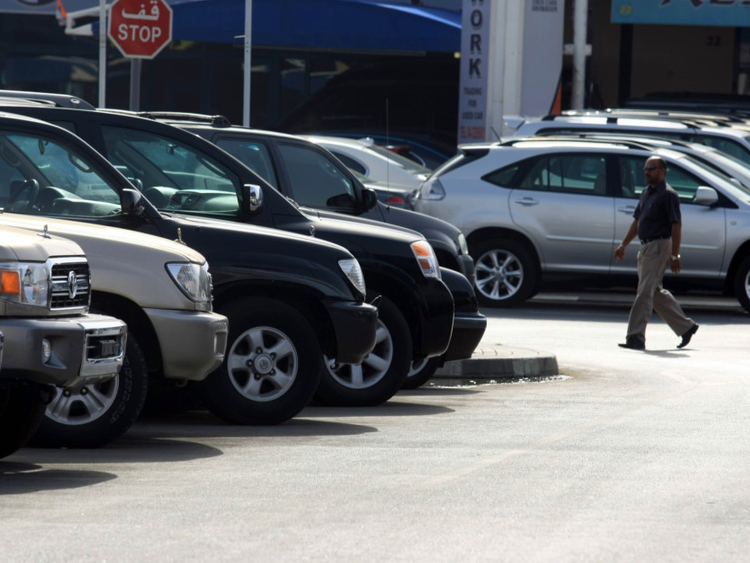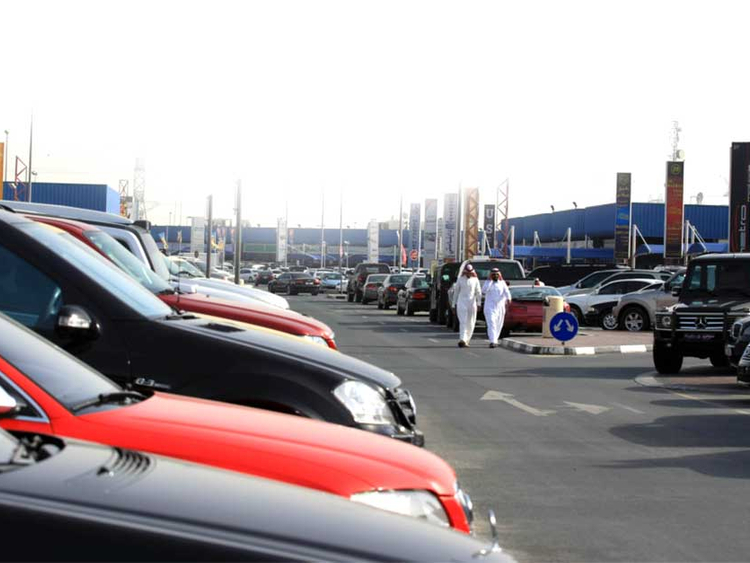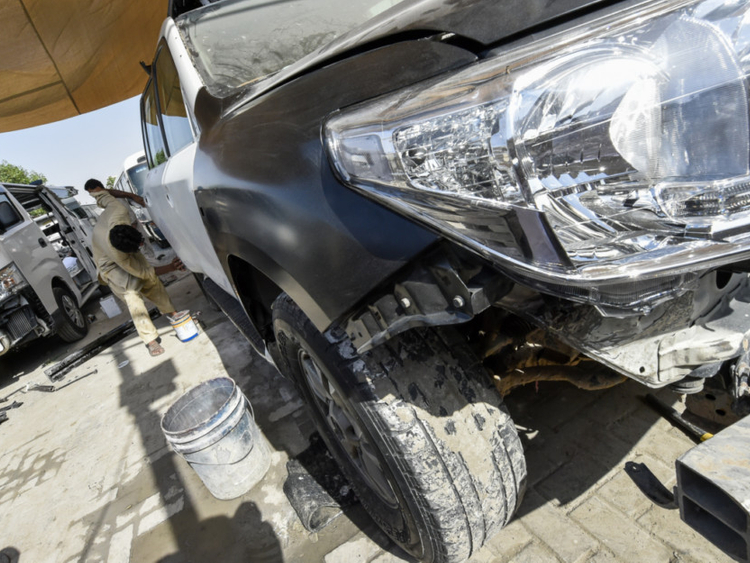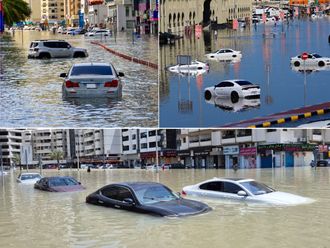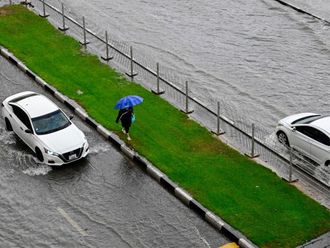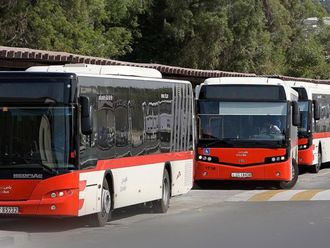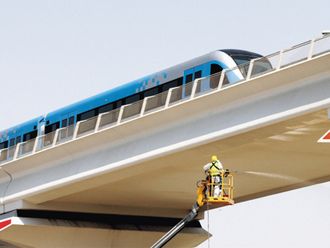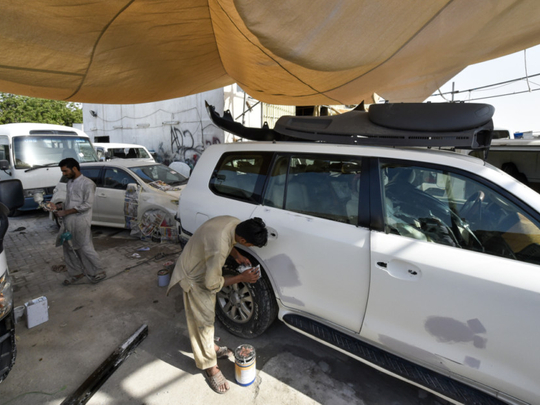
Dubai: When floods ravaged Texas in May 2015, estimates suggest stormwaters ruined as many as 10,000 vehicles.
Within weeks, media reported that one Texas salvage firm’s car lot, alone, was filled in the aftermath with 2,500 vehicles listed as total loss write-offs by insurance companies.
The sheer numbers of salvage cars prompted the National Insurance Crime Bureau in the US to step in to log and record the cars to prevent their resale by unscrupulous dealers and individuals both in and out of the US. “The major concern we have is that we certainly do not want to see total-loss flooded vehicles re-entering the stream of commerce at some point down the road,” Fred Lohmann, a Crime Bureau director, told the Houston Chronicle newspaper at the time.
Some used-car dealers in Dubai fear that just such total-loss cars are being imported into Dubai routinely as part of what they claim is a trend of salvage cars being shipped from US and Canada auction houses and imported into the Middle East.
Repaired, resold
Once shipped into Dubai, the cars are then repaired and resold as sound cars in their original condition to unsuspecting buyers, according to legitimate car showroom owners in Dubai.
Several dealers who spoke to Gulf News on the condition of anonymity, said more regulations are needed in Dubai to identify and block salvage cars purchased from North American auto auctions.
“Accident cars are a big problem. We need someone to check import cars,” said one showroom owner in Al Aweer municipal used car parking complex. “This is making a problem for our market.”
He said salvage cars are flooding some UAE markets and estimated that 80-90 per cent of used cars imported from North America are cars deemed as salvage.
The estimates could not be verified by Gulf News.
Huge repair bills
“Many, I’d say, 80 to 90 per cent of cars, are salvaged, the market is full,” said a dealer owner in an interview. “They don’t care if the car is damaged. If there is a storm coming [in United States, for example], how many cars end up in the water. Too much. So, they send them here or in the Gulf or in India. Too much cars.”
The end result is that after a salvage car is sold in the UAE, the new owner often ends up facing large repair bills when the vehicle breaks down.
“Other people are selling and not saying that [informing them of salvage designation].” One month, two months, three months, they will use the car and the engine is damaged,” he said.
One Dubai resident told Gulf News that he bought a late-model used Toyota car but when he tried to pass it through inspection, the car failed to pass because the chassis was welded and was obviously an accident car.
The man said “I got rid of it, I lost thousands of dirhams.”
He warned other potential used-car buyers to make sure they check the vehicle registration number before they shell out their hard-earned cash.
Call for tighter inspections
Used car dealers suggested that more regulations are needed to create a firewall at the UAE border to keep salvage cars from the used car market to protect proper car sellers as well as consumers.
The big problem, said the car dealer, is that many salvage cars coming from North America do not have accompanying paperwork that declares the car as a salvage and shady dealers in the UAE only need a “green paper” to bring the car into the country.
For example, one US online car auction website stated that the firm had more than 140,000 cars for auction in its inventory — including 8,000 cars that were damaged — and of the total, only 133,862 had what are called a “condition report”.
Online auctions, including one in Toronto, clearly list vehicles that are classified as “salvage insurance” and are stamped on the page with a badge that states them as “non-drivable”.
Those same warnings do not always accompany the car when it is imported into the UAE, said honest used-car dealers.
“We need somebody to open the car and check it there at Dubai Customs and then take it into UAE,” the dealer said. “That’s it. Maybe the RTA could open an inspection place at Customs to check cars.”
If a car is identified as salvage, dealers said the car should only be sold for spare parts in the UAE.
Until the flood of accident-damaged cars is stopped, people will continue to buy salvage cars because they are far less expensive than cars on honest, ethical car lots, said one dealer.
“While one accident-free used car model can cost Dh200,000, another same model can sell [salvaged and repaired] for Dh80,000,” the dealer said.
Checks performed
Dubai Customs told Gulf News that the Vehicle Inspection Numbers (VIN) of all cars entering the UAE are checked to ensure they are not stolen or listed by Interpol.
In an interview with Gulf News, Mohammad Al Muaini, director of Land Customs Centres Management at Dubai Customs, said his agency does not “issue decisions prohibiting or restricting importation of any kind."
"With regard to vehicles that are declared or labelled by insurance companies as being undrivable, such classification is the sole responsibility of insurance companies in the countries of export.
“A vehicle is declared undrivable in accordance with the rules and regulations in force in the country of export. However, this does not mean that the same such rules will be applied or are applicable in the country of import. Neither does it fall under the competence of Customs administrations to request any certificates issued by insurance companies on the condition of imported vehicles,” Al Muaini said.
He pointed out that “as far as vehicles clearance procedures are concerned, Dubai Customs inspects imported vehicles security wise, following the submission of respective Customs declaration and required documents, and then checks the vehicle’s actual specifications against the declaration and accompanying documents. The VIN (chassis number) is verified to make sure that the vehicle is not stolen and is not subject to an Interpol Notice. After doing so, a vehicle clearance certificate (VCC) is issued stating that the car has been cleared by Customs. This doesn’t mean that the vehicle is drivable or is valid for licensing or registration within the UAE.”
Al Muaini said the responsibility for determining whether a car is drivable is up to UAE authorities who oversee vehicle registration.
“As for determining whether the vehicle is in a drivable condition or not, it is established that such decision falls within the authority of vehicles licensing and registration authorities in the country, and not of the customs departments operating in the UAE. Therefore, the vehicles that don’t meet the certified technical specifications and conditions applied by the competent authorities shall be sold as spare parts, or otherwise re-exported outside the UAE, hence it is not allowed to have such vehicles registered within the UAE under such certificate to be issued by the competent authorities,” Al Muaini said.
RTA inspects vehicles
Ahmad Hashem Behroozian, CEO, Licensing Agency, Roads and Transport Authority, told Gulf News that the RTA does not determine which vehicles can be imported, it only inspects them after they are in the country.
“It is not under RTA’s jurisdiction to ban any type of vehicles from entering the country as this is taken care of by the Customs. Vehicles are registered by the RTA after they pass the prescribed vehicle inspection test, Behroozian said.
“The Customs have to identify such vehicles by marking the Vehicle Clearance Certificate (VCC) with a statement indicating the vehicle is a salvaged vehicle.”
If a questionable automobile does make it into the country and has considerable repairs, it will be caught by trained RTA inspectors, he said.
“Yes, our testing centres do not pass vehicles with signs of major repairs to the chassis or to the body which will affect the vehicle’s road worthiness and increase risks,” Behroozian said.
“It is not within our scope to stop any vehicle from entering the country for resale as every vehicle for sale or resale has to pass the required specifications prescribed by RTA and as such vehicles that do not match the required specifications cannot be registered.”
Dubai Statistics Centre showed that Jebel Ali Port handled 505,562 vehicles in 2014 classified as non-container goods and 480,100 vehicles in the same category for the year before.
A breakdown of new, used and salvage cars is not listed in the statistics.
The Dubai Economic Department confirmed to Gulf News that it has not recorded a single complaint by a consumer of being bilked into buying a shoddy salvage car.
Beware of curbsiders
It’s easy to find, buy and ship total-loss vehicles from online auctions in US and Canada at extremely low prices and have them shipped to the UAE.
One US car auction that sells salvaged cars ruled as a total loss by insurers said on its website: “We also coordinate overseas transport for thousands of vehicles to over 170 different countries. Complete market coverage and volume discounts allow us to pass significant savings to you and deliver vehicles as quickly as possible.”
According to a separate Canada-based online car auction, the website clearly offers cars classified as “salvage insurance” with a big red stamp beside their listings labelling the car as “nondrivable.”
Bidders, for example, can place their bids starting at $1 (Dh3.67) for a 2,000 Mercedes Benz S430 or a 2003 Nissan Altima — both are insurance write-offs.
Terry O’Keefe, director of Communications, Media Relations and Education for the Ontario Motor Vehicle Industry Council (Omvic), told Gulf News that his government-sponsored agency is working hard to fight what are called “curbsiders”, those who buy salvage cars, perform a small amount of cosmetic work, and then sell the damaged vehicle to unsuspecting buyers in Canada and abroad.
“Curbsiders are illegal, unlicensed dealers. Just as curbsiders commonly misrepresent themselves — often posing as private sellers — they frequently misrepresent the vehicles they sell; many are accident-damaged, rebuilt write-offs or odometer-tampered,” he said.
Prevalent problem
O’Keefe said his organisation does “not have the information to comment as to the likelihood of curb-siding in the Middle East. We do know from contact with other jurisdictions in Canada and the US that the problem is prevalent throughout North America”.
In Ontario, O’Keefe said the sale of salvaged cars was done through private ads by curbsiders pretending they are simply selling their own personal cars when, in fact, they have purchased a total-loss car, repaired it, and are duping consumers.
O’Keefe said “our research has shown that in Ontario, 28 per cent of all ‘private’ vehicle classified ads on a popular online marketplace were likely placed by curbsiders — this in a province known for its aggressive anti-curbsider initiatives. The same research showed 60 per cent of the private ads placed in British Columbia and 55 per cent of those placed in Quebec likely belonged to curbsiders”.
Tips to spot a salvage car
Ask the seller for the Vehicle Registration Number (VIN) and run it through www.nicb.org/theft_and_fraud_awareness/vincheck, a US-based online database designed to stop salvaged cars from being resold.
The National Insurance Crime Bureau (NICB) in the US offers the free service to users.
Vehicle not registered to seller or only registered to seller for short period
Vehicle priced below market value
Doesn’t provide vehicle history report
Refuses inspection by purchaser’s mechanic
Vehicle often not plated and/or uninsured; therefore test-drive is not possible
Refuses to provide receipt or proof of purchase
Source: Omvic, NICB


